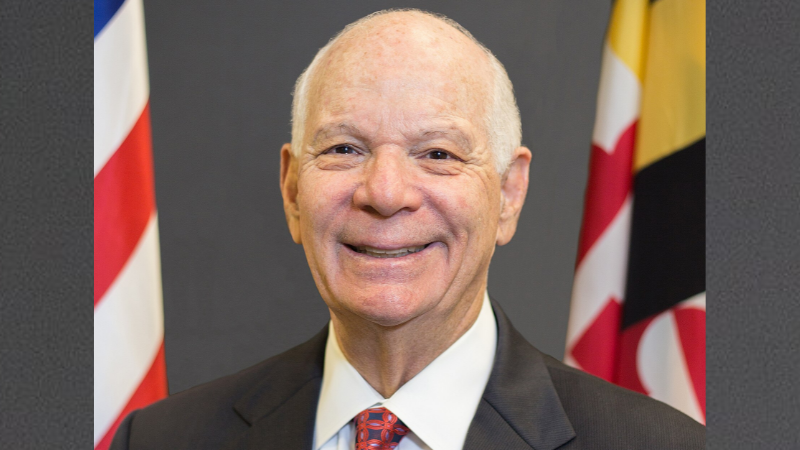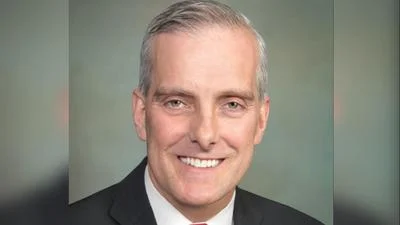Ben Cardin | Ben Cardin wikipedia
Ben Cardin | Ben Cardin wikipedia
WASHINGTON – U.S. Senators Ben Cardin (D-Md.) and Lindsey Graham (R-S.C.) and U.S. Representatives Jared Huffman (D-Calif.-2) and Jennifer González-Colón (R-P.R.), have introduced their bipartisan, bicameral legislation, the Coastal Habitat Conservation Act of 2023 (S. 1381/H.R. 2950), to authorize the U.S. Fish and Wildlife (FWS) Coastal Program. The Coastal Program is a voluntary, partnership-based, habitat conservation program focused in 24 priority coastal areas along the Atlantic and Pacific Oceans, Gulf of Mexico, Great Lakes, and in the Caribbean, including the Chesapeake Bay. Within these areas, FWS conservation efforts are guided by a national strategic plan that integrates Service priorities with the shared goals of conservation partners and stakeholders.
“Climate change, development and other pressures are challenging our coastal communities, increasing the need to strengthen successful efforts like the Coastal Program that serve to protect and engage them,” said Senator Cardin, a senior member of the Senate Environment and Public Works Committee. “Our legislation demonstrates Congress’ bipartisan commitment to strategic habitat conservation in coastal watersheds, which provide a host of ecosystem services such as recreation, tourism, fisheries and education. Resources for restoring and protecting fish and wildlife habitat are an investment in local economies, particularly entering American Wetlands Month, annually celebrated in May to raise awareness of the ecological, social and economic importance of wetlands across the nation.”
“Protecting South Carolina’s wetlands is an economic driver and ensures our natural resources are preserved for future generations,” said Senator Graham. “I look forward to working with my colleagues to advance bipartisan solutions like the Coastal Habitat Conservation Act to conserve our nation’s important natural resources.”
“Coastal ecosystems are an integral part of our nation’s economy and well-being, but climate change, pollution, and unsustainable development are rapidly deteriorating these critical resources,” said Rep. Huffman. “This collaborative bill is a bipartisan solution to preserve the health and resilience of coastal habitats, benefiting the wildlife, communities, and economies that depend on them.”
“The Coastal Program is one of the U.S. Fish and Wildlife Service’s most effective and proven initiatives, bringing together public and private partners to voluntarily protect and improve coastal habitats. That’s why I’m proud to support the bipartisan and bicameral Coastal Habitat Conservation Act, which would provide statutory authority to the program and ensure it has the tools to continue supporting locally-driven conservation projects across our nation’s coastal states and territories,” said Rep. González-Colón.
The Coastal Program was first established in the Chesapeake Bay in 1985 to begin address this concern and the resulting impacts to fish and wildlife. Since its inception, the program has expanded to 23 priority coastal areas. The Coastal Habitat Conservation Act of 2023 authorizes increasing appropriations of $20-25 million each for Fiscal Year 2024 through Fiscal Year 2028 for activities nationwide.
Endorsed by the Chesapeake Bay Foundation, Choose Clean Water Coalition, Coastal States Organization, National Wildlife Federation, Ocean Conservancy, Restore America’s Estuaries, The Nature Conservancy and National Audubon Society, the legislation directs the Secretary of the Interior” through the Coastal Program of the U.S. Fish and Wildlife Service to work with willing partners and provide support to efforts to assess, protect, restore and enhance important coastal landscapes that provide fish and wildlife habitat on which certain Federal trust species depend.”
“This bill provides much-needed statutory authority for the Coastal Program of the U.S. Fish and Wildlife Service, which is a critical partner in protecting and restoring our coasts,” said Daniel Hayden, President of Restore America’s Estuaries. “The Coastal Program ensures coastal communities, and natural environments on which they rely, to thrive for future generations.”
“The U.S. Fish and Wildlife Service’s Coastal Program has been a staple for 40 years in restoring and protecting millions of acres of habitat, providing significant conservation benefits to coastal communities, ecosystems, and wildlife,” said Kathy Tsantiris, Associate Director of Government Relations at Ocean Conservancy. “With increasing pressures from climate change, sea level rise, land development, pollution, and habitat fragmentation, this program is more important than ever. Congress should act swiftly to pass this bipartisan and bicameral legislation, which will authorize the Coastal Program in perpetuity with regular appropriations.”
“Protecting coastal wetlands is essential to restoring the health and productivity of the Chesapeake Bay. Restoration measures also bolster the resilience of this national treasure and economic engine to damaging climate change effects like extreme flooding and sea-level rise,” said Keisha Sedlacek, Chesapeake Bay Foundation (CBF) Federal Director. “CBF applauds the introduction of the Coastal Habitat Conservation Act, which builds on the Fish and Wildlife Service’s first coastal protection initiative in the Bay watershed. This important legislation is supported by members of both parties in the House and Senate. We urge Congress to act on it soon.”
According to the U.S. Environmental Protection Agency, “wetlands are renowned for their ability to remove excess nutrients, toxic substances, and sediment from water that flows through them, helping to improve downstream water quality and the overall health of waters in our communities… Wetlands can absorb excess rain or river water so they protect against flooding … They are both an effective and economical way to enhance community safety while improving quality of life.” They provide essential nutrients, food, and shelter for plants, shellfish, waterfowl, migratory birds, more than half of commercial fish, and 45 percent of endangered and threatened species.
Original source can be found here






 Alerts Sign-up
Alerts Sign-up